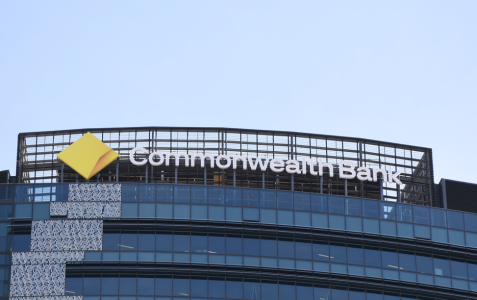Essential change by Commonwealth Bank and Telstra to safeguard our seniors
By
- Replies 21
In an age of rapidly advancing technology, it's crucial to ensure that all community members, especially seniors, are protected from the darker side of the digital world—scams.
Recognising the vulnerability of older Australians to fraudulent schemes, Commonwealth Bank (CBA) and Telstra have joined forces to introduce an 'essential' change that aims to shield our seniors from cybercriminals.
The partnership between CBA and Telstra has expanded the use of their anti-scam technology, Scam Indicator, to landline phones.
This move is particularly significant given that landlines remain a lifeline for many older Australians.
According to Telstra data, 85 per cent of landline numbers are registered to individuals over 60.
With this demographic being a prime target for scammers, the Scam Indicator service is a timely intervention.
'Landlines are still an essential service for many Australians, but they can also be a target for opportunistic scammers who prey on people's trust and goodwill,' said Sandy Cameron, CEO of Quantium Telstra.
'Expanding Scam Indicator to cover landlines means we (can) help safeguard those in our community most vulnerable to being targeted by cybercriminals.'
Initially rolled out to mobile phones in 2023 for Telstra and CBA customers, Scam Indicator utilises a Telstra Application Programming Interface (API) that enables CommBank to identify high-risk scam situations in real time.
Suppose a customer is engaged in a phone call that the CBA Fraud Team deems suspicious.
In that case, they can intervene by sending a warning message to the customer or even placing holds or blocks on the customer's account to prevent the transfer of large sums of money to scammers.
Since its implementation, Australians have saved millions of dollars – funds that would have been nearly impossible to recover once lost to scammers.
James Roberts, CommBank’s General Manager of Group Fraud, highlighted the urgency scammers create to convince victims to part with their money.
'As an example, our teams recently used this technology to help stop an elderly customer from being scammed when she was talking to a scammer using her landline,' he said.
'The scammer had convinced the customer to download software that gave them full access to her computer and banking information.'
He shared an instance where the technology prevented an elderly customer from losing $70,000 after being duped into giving a scammer access to her computer and banking information.
The rollout of Scam Indicator to landlines is a significant advancement in the fight against scams, particularly given the alarming statistics from the National Anti-Scam Centre.
In 2023, individuals over 65 lost more money to scammers than any other age group, and phone calls were the most common method criminals used.
Furthermore, this age group reported the most scams in the first quarter 2024.
The collaboration between CBA and Telstra exemplifies the power of joint efforts in combating scams.
'We know we are stronger together against the scammers when we take a whole ecosystem approach – banks, social media, telcos, government, and also consumers, all have a role to play,'
Despite a slight decrease in total losses from $3.1 billion to $2.7 billion in the last year, the number of scams reported has risen by 18.5 per cent, with over-65s being the hardest hit.
Investment, remote access, and romance scams remain the most prolific, with losses in the millions.
For those who find themselves victims of a scam, it's crucial to act swiftly.
Contact your bank immediately to halt transactions, report the scam to Scamwatch, and make an official police complaint.
Be wary of follow-up scams, especially those promising to recover lost funds. Scamwatch warns that one in three scam victims is targeted more than once.

How do you think adding Scam Indicator technology to landlines will improve protection for older Australians against scams? What other measures could help further safeguard seniors from fraud? Share your thoughts in the comments below.
Recognising the vulnerability of older Australians to fraudulent schemes, Commonwealth Bank (CBA) and Telstra have joined forces to introduce an 'essential' change that aims to shield our seniors from cybercriminals.
The partnership between CBA and Telstra has expanded the use of their anti-scam technology, Scam Indicator, to landline phones.
This move is particularly significant given that landlines remain a lifeline for many older Australians.
According to Telstra data, 85 per cent of landline numbers are registered to individuals over 60.
With this demographic being a prime target for scammers, the Scam Indicator service is a timely intervention.
'Landlines are still an essential service for many Australians, but they can also be a target for opportunistic scammers who prey on people's trust and goodwill,' said Sandy Cameron, CEO of Quantium Telstra.
'Expanding Scam Indicator to cover landlines means we (can) help safeguard those in our community most vulnerable to being targeted by cybercriminals.'
Initially rolled out to mobile phones in 2023 for Telstra and CBA customers, Scam Indicator utilises a Telstra Application Programming Interface (API) that enables CommBank to identify high-risk scam situations in real time.
Suppose a customer is engaged in a phone call that the CBA Fraud Team deems suspicious.
In that case, they can intervene by sending a warning message to the customer or even placing holds or blocks on the customer's account to prevent the transfer of large sums of money to scammers.
Since its implementation, Australians have saved millions of dollars – funds that would have been nearly impossible to recover once lost to scammers.
James Roberts, CommBank’s General Manager of Group Fraud, highlighted the urgency scammers create to convince victims to part with their money.
'As an example, our teams recently used this technology to help stop an elderly customer from being scammed when she was talking to a scammer using her landline,' he said.
'The scammer had convinced the customer to download software that gave them full access to her computer and banking information.'
He shared an instance where the technology prevented an elderly customer from losing $70,000 after being duped into giving a scammer access to her computer and banking information.
The rollout of Scam Indicator to landlines is a significant advancement in the fight against scams, particularly given the alarming statistics from the National Anti-Scam Centre.
In 2023, individuals over 65 lost more money to scammers than any other age group, and phone calls were the most common method criminals used.
Furthermore, this age group reported the most scams in the first quarter 2024.
The collaboration between CBA and Telstra exemplifies the power of joint efforts in combating scams.
'Working together with Telstra is a good example of the power of collaboration, using data and technology for good with security and privacy at the forefront,' Robert stated.'We know we are stronger together against the scammers when we take a whole ecosystem approach – banks, social media, telcos, government, and also consumers, all have a role to play,'
Despite a slight decrease in total losses from $3.1 billion to $2.7 billion in the last year, the number of scams reported has risen by 18.5 per cent, with over-65s being the hardest hit.
Investment, remote access, and romance scams remain the most prolific, with losses in the millions.
For those who find themselves victims of a scam, it's crucial to act swiftly.
Contact your bank immediately to halt transactions, report the scam to Scamwatch, and make an official police complaint.
Be wary of follow-up scams, especially those promising to recover lost funds. Scamwatch warns that one in three scam victims is targeted more than once.
Key Takeaways
- The Commonwealth Bank and Telstra have expanded their Scam Indicator technology to cover landlines to protect older Australians from scams.
- The Scam Indicator identifies high-risk scam situations in real time. It can warn customers or block transactions if necessary.
- People over 65 have lost more money to scammers than any other age group, with phone calls being the most common method scammers use.
- Australians lost $2.7 billion to scams in the previous year, with investment scams being the most prolific, followed by remote access and romance scams.








